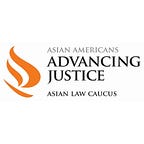Repaying Our Parents’ & Grandparents’ Sacrifices
For many Asian American, Native Hawaiian, and Pacific Islander families, our parents and grandparents have struggled to provide a better future for us, and have paved the way for our successes. To honor and repay them for their sacrifices, we can ensure that they have the care they need to age with dignity. Access to affordable health care is a human right that all families should have access to in order to thrive.
Carrie’s mom suffered stomach pain so severe that it left her at the verge of becoming unconscious, and she was forced to assess whether she could pay for the medical services she needed. Last year, RJ’s mom went to the doctor for what she thought was a routine visit. Instead, she was forced to make the difficult decision between getting a surgery her family could not afford or potentially losing her vision. These are common stories that we hear from our community. As our family members age, they would need more access to affordable health care, but often cannot get it. Our families are left with difficult decisions, too often the case for those in the undocumented community. The lack of access to health care in the undocumented community is significant. The UC Berkeley Labor Center estimates there are currently at least 1.8 million undocumented Californians who lack health insurance. Despite the successes of the Affordable Care Act in California, the National Center for Health Statistics estimates that 58% of the remaining uninsured population in California are undocumented.
It’s critical that we open the doors of our Medi-Cal system to all low-income Californians, regardless of their immigration status. California has been taking incremental but significant steps to open up its health care system to its undocumented residents. In 2015, Governor Jerry Brown signed the Health4All Kids Act, which expanded full-scope Medi-Cal to all California children under the age of 19, regardless of their immigration status.
Now, the 2019–2020 California budget includes allocation that would expand Medi-Cal eligibility to all Californians ages 19 through 25, regardless of their immigration status. This would make California the first state to expand coverage to any undocumented adult population. However, the state budget leaves our undocumented parents and grandparents behind. While we celebrate the California legislature for increasing access to health care for undocumented Young Adults, restricting Medi-Cal expansion to only the younger population perpetuates the divisive idea that certain immigrants are more deserving than others, and undermines the livelihood of our elders, who are the backbone of our community.
Opponents of Medi-Cal expansion argue that providing care to undocumented Californians is too large a financial burden but expanding coverage to all Californians, regardless of their immigration, is financially prudent and the humane thing to do. Financially, studies have found that coverage expansion generates savings and revenue for the state that can be used for other priorities. Studies have also shown that coverage expansion is associated with factors that contribute to better health outcomes. As California’s aging immigrant population grows older they will become more vulnerable to illness, but because of their status low-income undocumented elders, without affordable access to insurance, are forced to wait until they have an emergency before they receive care. The Legislative Analyst’s Office (LAO)’s recent analysis of the Medi-Cal budget found that undocumented elders may benefit more from Medi-Cal expansion than young adults. Expanding coverage to our undocumented elders would save money for the state and, more importantly, give care to those who truly need it the most.
Among Asian and Pacific Islander immigrant households, there is an expectation to provide care for their elders — a value that is shared among many immigrant households and households of color. As the children and grandchildren of these elders, undocumented Asian young adults stand in solidarity with community members and health advocates across the state in including undocumented parents and grandparents in our healthcare system.
As California leads the charge in protecting immigrant communities, we should also lead in ensuring that our community’s familial values are reflected in the way we provide care to our community members. California’s 2019–20 budget will expand Medi-Cal to undocumented young adults ages 19–25, but doing so while ignoring the needs of our elders betrays our values in protecting the most vulnerable members of our communities.
Carrie and RJ are immigrant rights advocates and members of Asian Students Promoting Immigrant Rights Through Education (ASPIRE) and UPLIFT, respectively.
